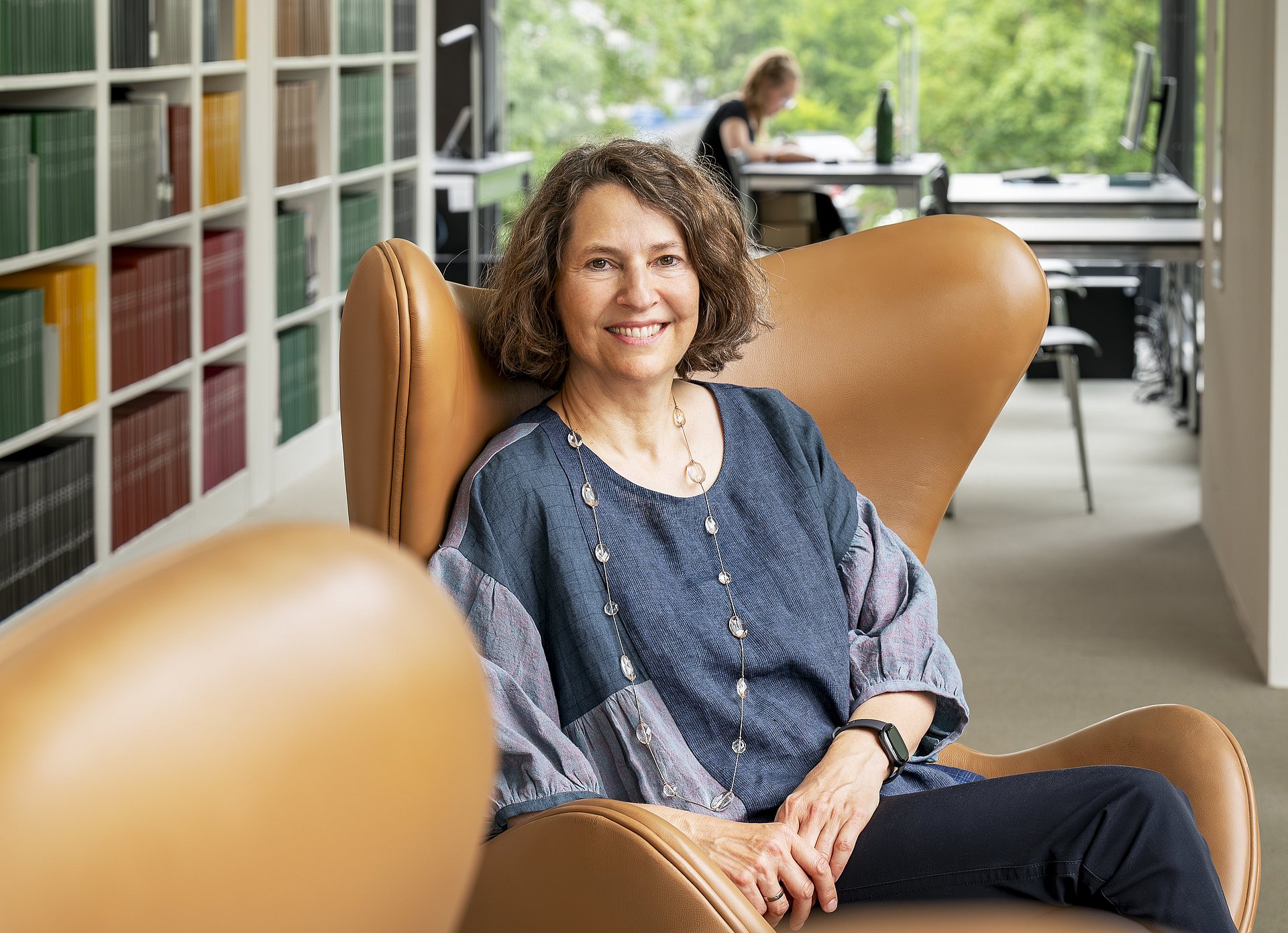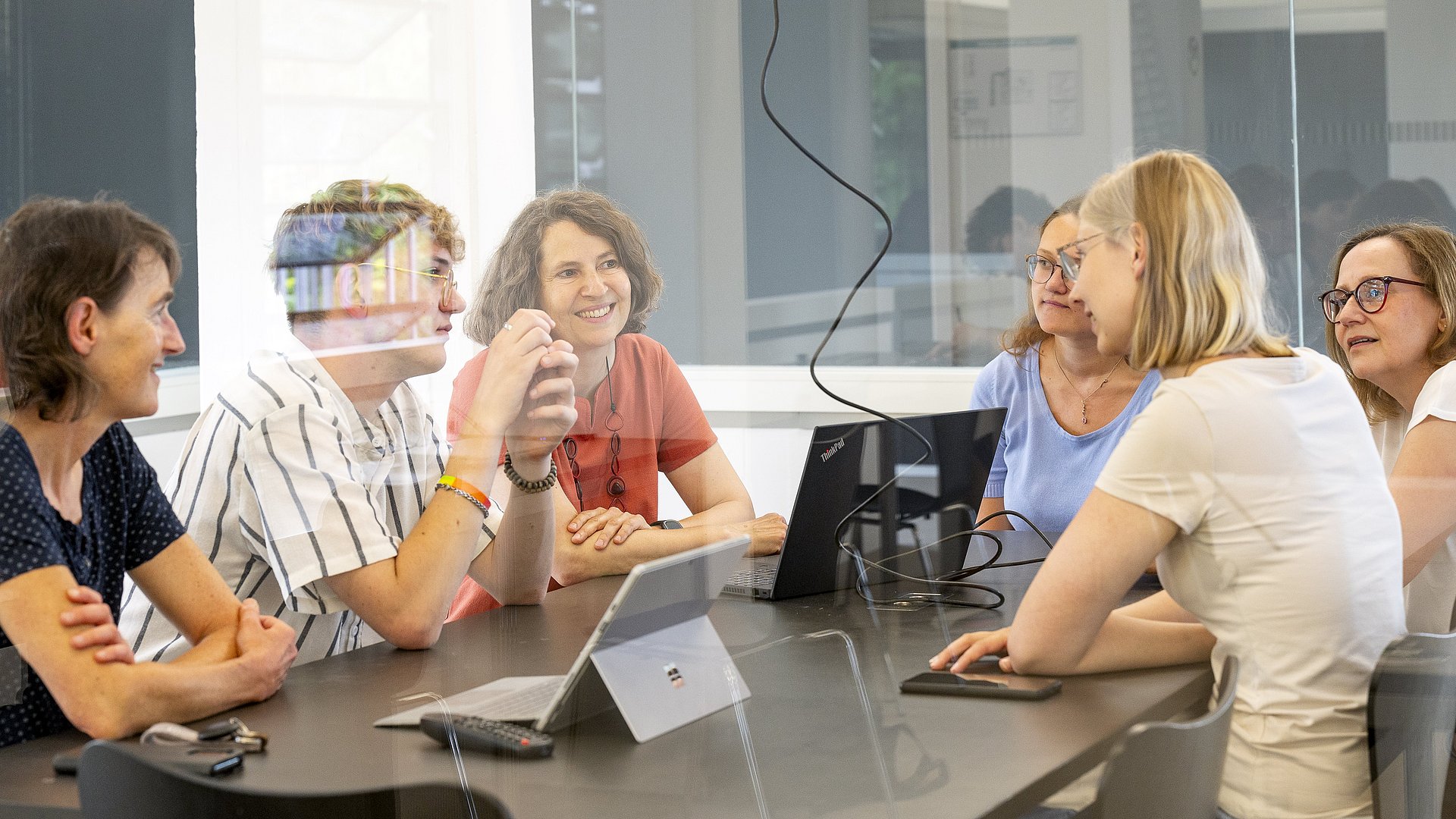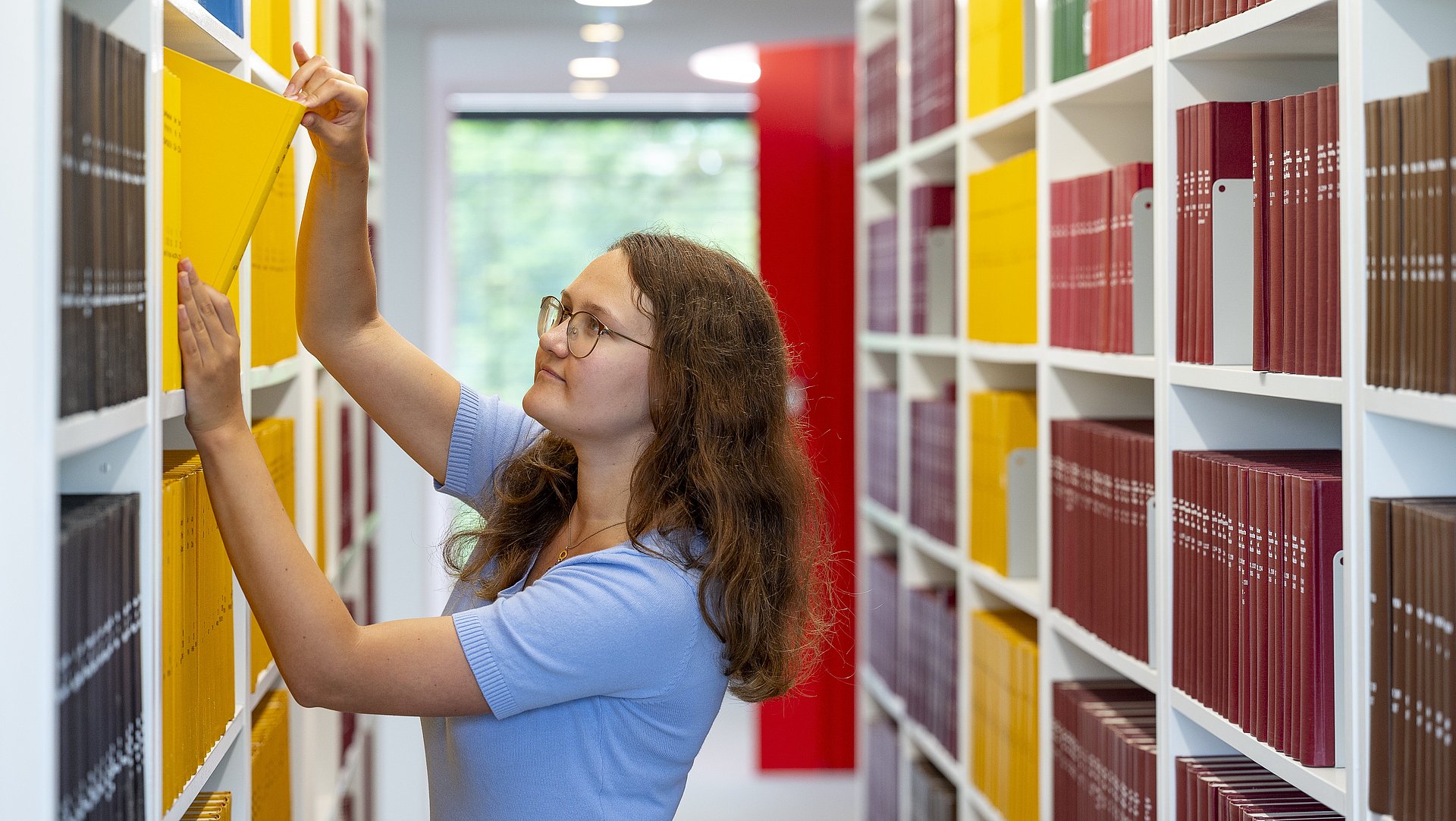Caroline Leiss, new head of the TUM University Library, in profile
A librarian with a passion

Dr. Caroline Leiss has turned her desk around, far in the back of her office – she wants to see who comes in the door. She regularly shares her office with her management team – most of the space is taken up by a large, oval conference table where she often sits since, as she says, "We talk a lot."
Her predecessor, Dr. Reiner Kallenborn, entered retirement on March 1, 2023. Long before that, in September 2022, Leiss took over as interim director of the TUM Library and has been the official Director since June 1.
You have to enjoy listening and also talking
Head of the TUM University Library
Caroline Leiss avoids the word "she" and rarely uses "I": She prefers to speak about "us" and "the management team" which includes the five department heads, among them her deputy, Dr. Christoph Mitscherling, who heads Public Services, and Leiss herself. And it would all be impossible without the approximately 120 employees on the University Library staff – it takes the dedication and expertise of everyone involved for the library to keep offering and developing its services. Team spirit is important to her, as is the service provider mindset: "We're data and IT service providers," says Leiss.
More transparency in data
Data in the library's environment are usually metadata, research data, and citation metrics. Caroline Leiss is an expert on data. She enjoys explaining the details of why bibliometric data have to be handled responsibly. For example, because of DORA, the San Francisco Declaration on Research Assessment, a voluntary commitment by research institutions to use citation metrics responsibly. TUM is now implementing the declaration, which it signed onto in 2022.
Especially on this topic, Caroline Leiss has the upper hand, after all, she headed the Bibliometrics team for ten years. She will now stepping back from everyday bibliometric operations to make time for her new position. "You have to enjoy listening and also talking," she says, describing her job: Because the library is a cross-section topic, a subject that involves and impacts people.
In recent years, she has also supervised trainees as the head of library education and vocational training. She was always happy to see 15-year-olds grow into adult "Media and Information Services Specialists" in just three short years.
The trend towards Open Access
The new University Librarian also demonstrates her ability to get right to the point when it comes to other important topics, such as DEAL. The project wants to make Open Access, unrestricted availability of publications, the standard in scientific publishing. Until now, a significant share of research results are located behind paywalls. At the same time, academic publishers are modifying their business models: Universities used to pay for increasingly expensive subscriptions, but now they have to invest enormous amounts in publication costs. This is a lucrative business for publishers, especially for the major publishing houses – a fact that draws criticism from Caroline Leiss: "Half of the world belongs to the big players." For some time now, stakeholders throughout Germany have been working on a new model that will keep Open Access publication costs affordable for universities and, in return, guarantees unrestricted access to scientific journals. Caroline Leiss says it is finally time for a solution: "Now, as TUM, we can help shape the future."
She enjoys shaping things and working her way into new challenges, for example, handling research data. The University Library recently teamed up with the Munich Data Science Institute to form the TUM Research Data Hub, which advises researchers on how to archive their data in a transparent and accessible way. This includes addressing questions like "What do you do with data after concluding a project?" or developing a tool that allows easy access to data stored in various locations.
In any case, there is no shortage of open topics at the University Library – and when Caroline Leiss has once again spent many long hours at her desk or the conference table, she likes to take the flight of stairs from her office down to the Main Campus Branch Library to see how many study desks are occupied. Her favorite library among the nine branches? "They're all wonderful," whether the Physics Branch Library with its bright red walls or the library at the new TUM Campus in the Olympic Park with so much interior wood. She plans to be regularly present in Garching and Weihenstephan and, of course, also occasionally at the more distant locations such as Straubing.
From Konstanz to Munich
You can feel her enthusiasm for her profession. Interestingly, during her studies in Slavic and German philology in Tübingen, Berlin, and Konstanz, she did not have library sciences in mind at all. However, after earning her doctorate, she at some point felt like she had reached a dead end, like so many in the academic mid-level ranks. Then, she learned about the opportunity of a library traineeship with one year of theoretical and one year of practical training. Caroline Leiss completed her training in Konstanz and Munich and has been at TUM since 2003.
What is needed: Persistence and patience
What does a librarian like to read? "Everything!" The classics – she likes Robert Walser – non-fiction books about AI, robotics, and climate change, as well as graphic novels. But she also enjoys handicraft, spending a lot of time outdoors, and running. In early June, she returned from a hiking trip that took her from from the Thuringian town of Sondershausen to Goslar – one of the segments of the route between Munich and the Lüneburg Heath in Northern Germany, where she grew up. She is making her long trip across Germany, one step at a time. She talks about the incredible views that constantly keep opening up and also about dead trees since the German summer has turned too hot and dry. She believes this hiking project is a good fit with her job heading a library. Both call for persistence and patience, she adds. After listening to Caroline Leiss for a while, it is clear to see: She will succeed with just that.
Technical University of Munich
Corporate Communications Center
- Jeanne Rubner
- tumcampus@tum.de
- presse@tum.de
- Teamwebsite

